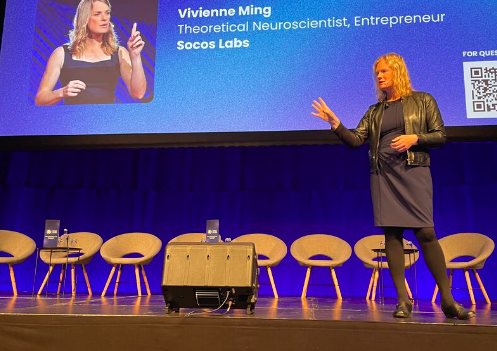Perverse Incentives vs Innovation

This week we look at ways to explore new information and the measures of human capacity.
You want to support my work but don't need a keynote from a mad scientist? Please become a paid subscriber to this newsletter and recommend to friends!
Research Roundup
Highly Efficient Banality
“Speed kills” used to be the mantra. Perhaps the modern version should be “efficiency kills”...at least when it comes to innovation and total productivity.
As scientists write more papers they get more citations; unfortunately, their papers become “less impactful and disruptive”. Curiously, they also “tend to give references to recent and high-impact research”, suggesting that they are shifting their work towards incremental exploitation of “safe” ideas rather than risky exploration of new ideas.
In a completely different domain, under certain circumstances animals appeared to search for food less when food becomes more abundant. While this strangely paradoxical behavior may seem irrelevant to humans, it turns out we do the same thing: “under certain reward mechanisms, enhancing workers’ production capacities can inadvertently trigger a surge in free-riding behavior, leading to both diminished group productivity and reduced individual payoffs”.
These are both generalized versions of my Information-Exploration Paradox: as information/food/productivity increases exploration decreases. Think hard about that the next time someone sells you on how AI can boost your efficiency. #ProductiveFriction!
Economics: The Sexy Science?
Human capacity can be very hard to measure, and it is so easy to be misled by standard measures.
The research world is often driven by citation counts and prestige—a highly cited Oxford economist must be better than a colleague and Purdue, right? Well…are they cute? “Attractive individuals are more likely to study at higher ranked PhD institutions”, hold jobs “at higher-ranking academic institutions”, and accumulate more “citations for a given number of papers”.
In contrast to a bias in favor of (possibly under-earned) prestige, there are countering biases about elite talent. Doctors, for example, are a costly part of the medical system that payers are increasingly substituting with nurses or online services. Yet substituting nurses for doctors actually increases costs as, “on average, nurse practitioners use more resources but achieve worse patient outcomes relative to physicians.” So stop using nurses? Actually, the difference in human capital across doctors is even greater than the difference between doctors and nurses. This leads to the terrible reality that “wages and assigned patient complexity vary only weakly with productivity”.
This finding on medical professions reminds me of Raj Chetty’s finding that the bottom 5% of teachers are a massive drag on the life outcomes of their students. We need much better measures of human capacity.
Weekly Indulgence

“Mad Science Solves…” is relaunching!
Ask Me Anything once a month, starting June 27.
(My team is toying with making this a premium feature—join for free while you can!)
Location: Online Event
Date & Time: Thursday, June 27, 11AM-12PM PST
Stage & Screen
- June 26, The White House: I'm in DC to speak at the White House about to Innovate on Innovation (and speak at the Pride celebration).
- July 2, Boston: National Charter School Association We must change education or we'll be trapped in a future that needs explorers but builds cogs.
- July 3, London: I'm giving a lecture AI & Women's Health at UCL (more to follow).
- July 22, DC: Keynote at Jobs For the Future Horizons!
Upcoming this Fall (tentative)
- August 14-15 Napa: Mandrake Capital Partners
- September 8, Athens: ESOMAR
- September 11, Seoul: World Knowledge Forum
- September 12-14, NYC: Out In Tech
- September 25, SF: BCG Australia
- September 26, Wyoming
Find more upcoming talks, interviews, and other events on my Events Page.
If your company, university, or conference just happen to be in one of the above locations and want the "best keynote I've ever heard" (shockingly spoken by multiple audiences last year)?
<<Please support my work: book me for a keynote or briefing!>>
SciFi, Fantasy, & Me
I’m not certain why I’m enjoying Sweet Tooth (Netflix) so much. It is far from perfect and I’d rather see an adaptation of Saga (please!). But I’ve found its fantastical take on a classic post-apocalyptic journey quite engaging—something about the juxtaposition of the whimsical kids and the brutal end times. Still…the us or them choice is bad trolley problem.
Vivienne L'Ecuyer Ming
| Follow more of my work at | |
|---|---|
| Socos Labs | The Human Trust |
| Dionysus Health | Optoceutics |
| RFK Human Rights | GenderCool |
| Crisis Venture Studios | Inclusion Impact Index |
| Neurotech Collider Hub at UC Berkeley |